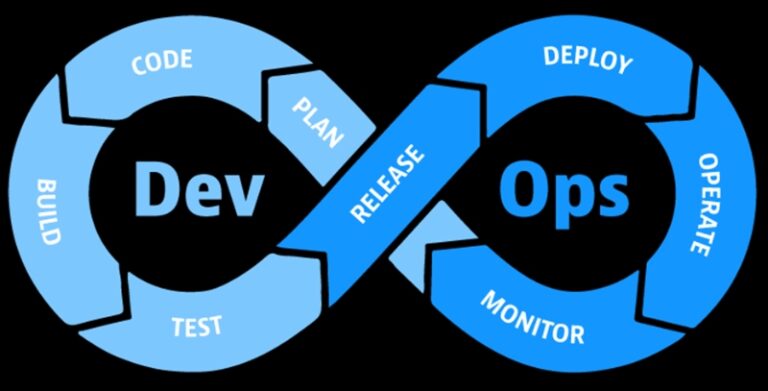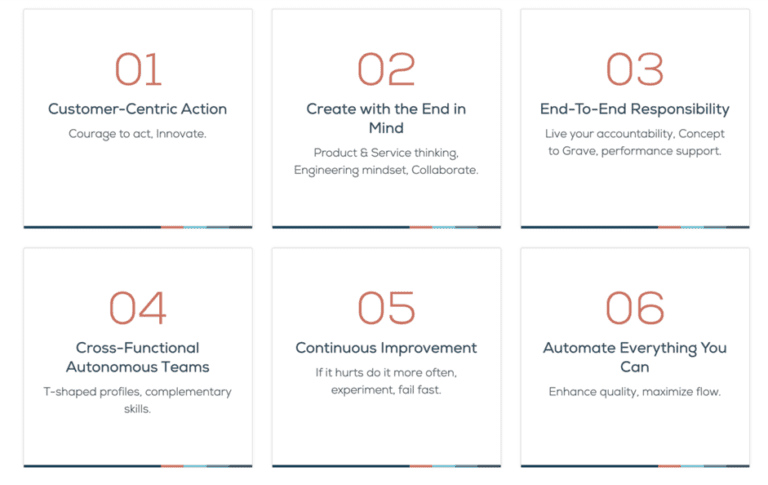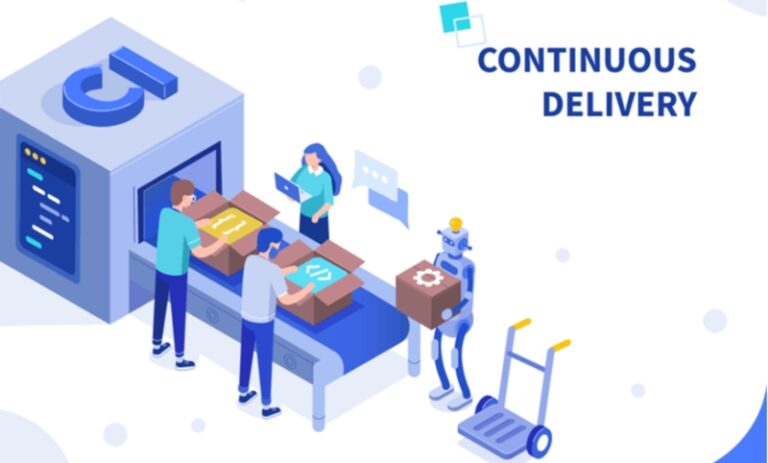What is the Principle of DevOps?
There are several definitions of DevOps, and many of them sufficiently explain one or more characteristics that are critical to finding flow in the delivery of IT services. Instead of attempting to provide a complete description, we want to emphasize DevOps principles that we believe are vital when adopting or shifting to a DevOps method of working.

What is DevOps?#
DevOps is a software development culture that integrates development, operations, and quality assurance into a continuous set of tasks (Leite et al., 2020). It is a logical extension of the Agile technique, facilitating cross-functional communication, end-to-end responsibility, and cooperation. Technical innovation is not required for the transition to DevOps as a service.
Principles of DevOps#
DevOps is a concept or mentality that includes teamwork, communication, sharing, transparency, and a holistic approach to software development. DevOps is based on a diverse range of methods and methodologies. They ensure that high-quality software is delivered on schedule. DevOps principles govern the service providers such as AWS Direct DevOps, Google Cloud DevOps, and Microsoft Azure DevOps ecosystems.

Principle 1 - Customer-Centric Action#
Short feedback loops with real consumers and end users are essential nowadays, and all activity in developing IT goods and services revolves around these clients.
To fulfill these consumers' needs, DevOps as a service must have : - the courage to operate as lean startups that continuously innovate, - pivot when an individual strategy is not working - consistently invest in products and services that will provide the highest degree of customer happiness.
AWS Direct DevOps, Google Cloud DevOps, and Microsoft Azure DevOps are customer-oriented DevOps.
Principle 2 - Create with the End in Mind.#
Organizations must abandon waterfall and process-oriented models in which each unit or employee is responsible exclusively for a certain role/function and is not responsible for the overall picture. They must operate as product firms, with an explicit focus on developing functional goods that are sold to real consumers, and all workers must share the engineering mentality necessary to imagine and realise those things (Erich, Amrit and Daneva, 2017).
Principle 3 - End-to-end Responsibility#
Whereas conventional firms build IT solutions and then pass them on to Operations to install and maintain, teams in a DevOps as a service are vertically structured and entirely accountable from idea to the grave. These stable organizations retain accountability for the IT products or services generated and provided by these teams. These teams also give performance support until the items reach end-of-life, which increases the sense of responsibility and the quality of the products designed.
Principle 4 - Autonomous Cross-Functional Teams#
Vertical, fully accountable teams in product organizations must be completely autonomous throughout the whole lifecycle. This necessitates a diverse range of abilities and emphasizes the need for team members with T-shaped all-around profiles rather than old-school IT experts who are exclusively informed or proficient in, say, testing, requirements analysis, or coding. These teams become a breeding ground for personal development and progress (Jabbari et al., 2018).
Principle 5 - Continuous Improvement#
End-to-end accountability also implies that enterprises must constantly adapt to changing conditions. A major emphasis is placed on continuous improvement in DevOps as a service to eliminate waste, optimize for speed, affordability, and simplicity of delivery, and continually enhance the products/services delivered. Experimentation is thus a vital activity to incorporate and build a method of learning from failures. In this regard, a good motto to live by is "If it hurts, do it more often."
Principle 6 - Automate everything you can#
Many firms must minimize waste to implement a continuous improvement culture with high cycle rates and to develop an IT department that receives fast input from end users or consumers. Consider automating not only the process of software development, but also the entire infrastructure landscape by constructing next-generation container-based cloud platforms like AWS Direct DevOps, Google Cloud DevOps, and Microsoft Azure DevOps that enable infrastructure to be versioned and treated as code (Senapathi, Buchan and Osman, 2018). Automation is connected with the desire to reinvent how the team provides its services.

Remember that a DevOps Culture Change necessitates a Unified Team.#
DevOps is just another buzzword unless key concepts at the foundation of DevOps are properly implemented. DevOps concentrates on certain technologies that assist teams in completing tasks. DevOps, on the other hand, is first and foremost a culture. Building a DevOps culture necessitates collaboration throughout a company, from development and operations to stakeholders and management. That is what distinguishes DevOps from other development strategies.
Remember that these concepts are not fixed in stone while shifting to DevOps as a service. DevOps Principles should be used by AWS Direct DevOps, Google Cloud DevOps, and Microsoft Azure DevOps according to their goals, processes, resources, and team skill sets.